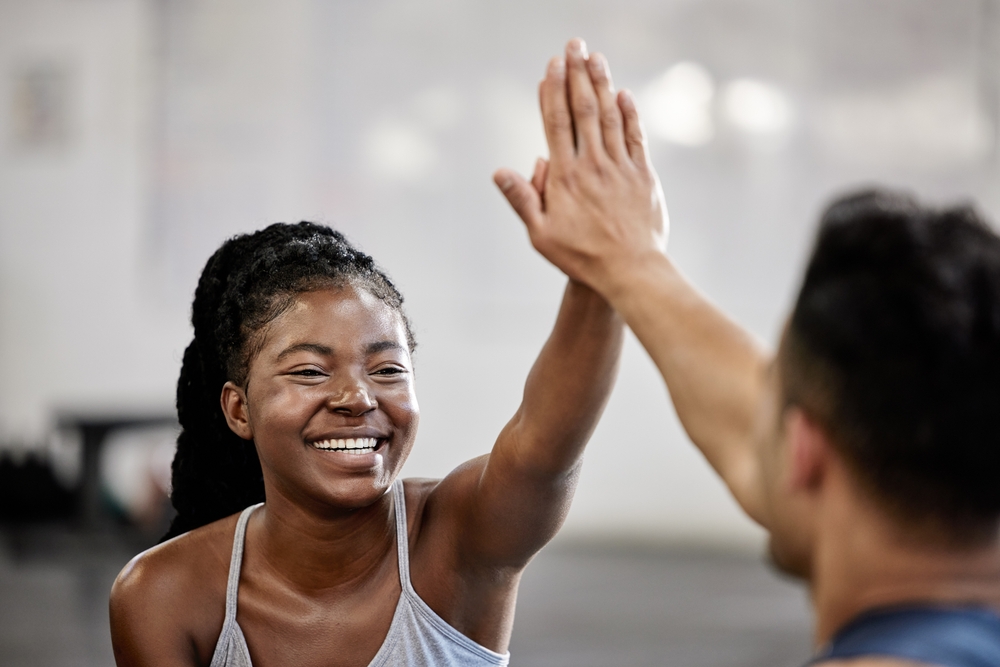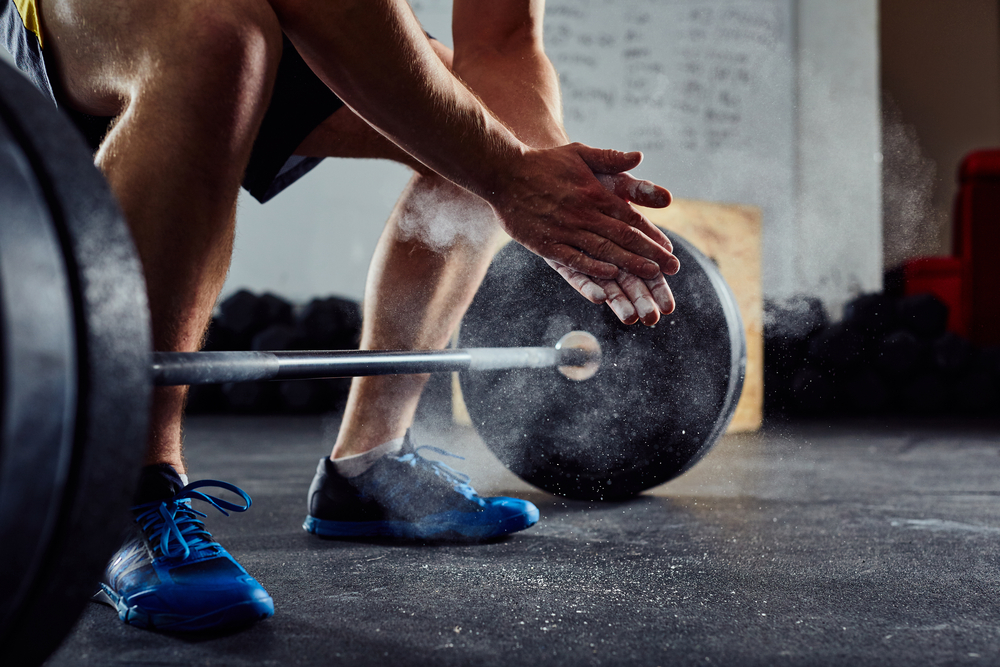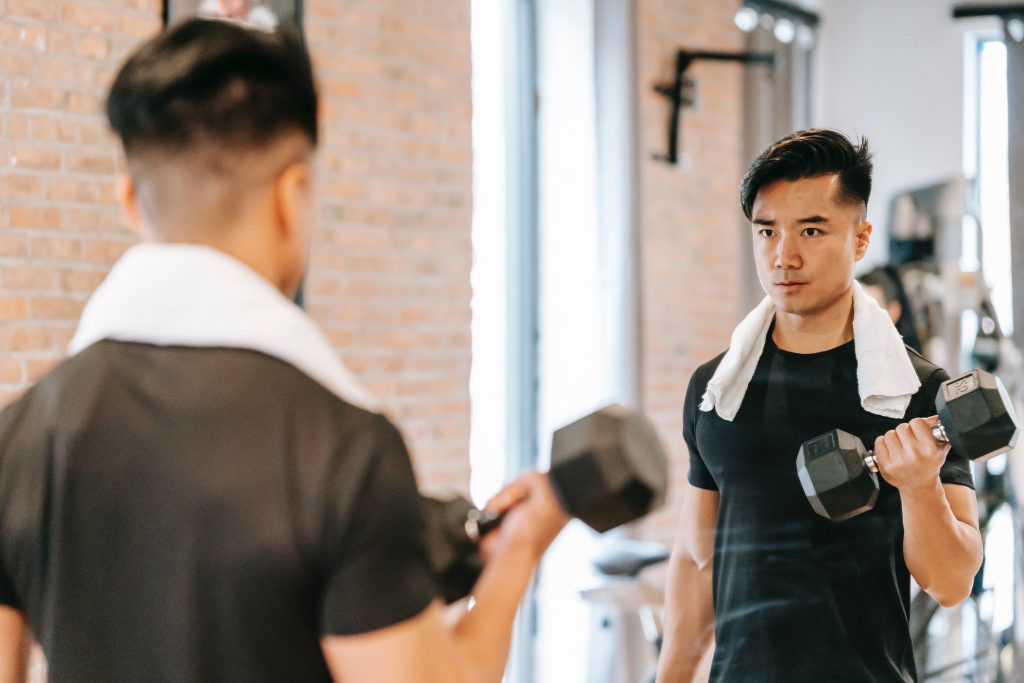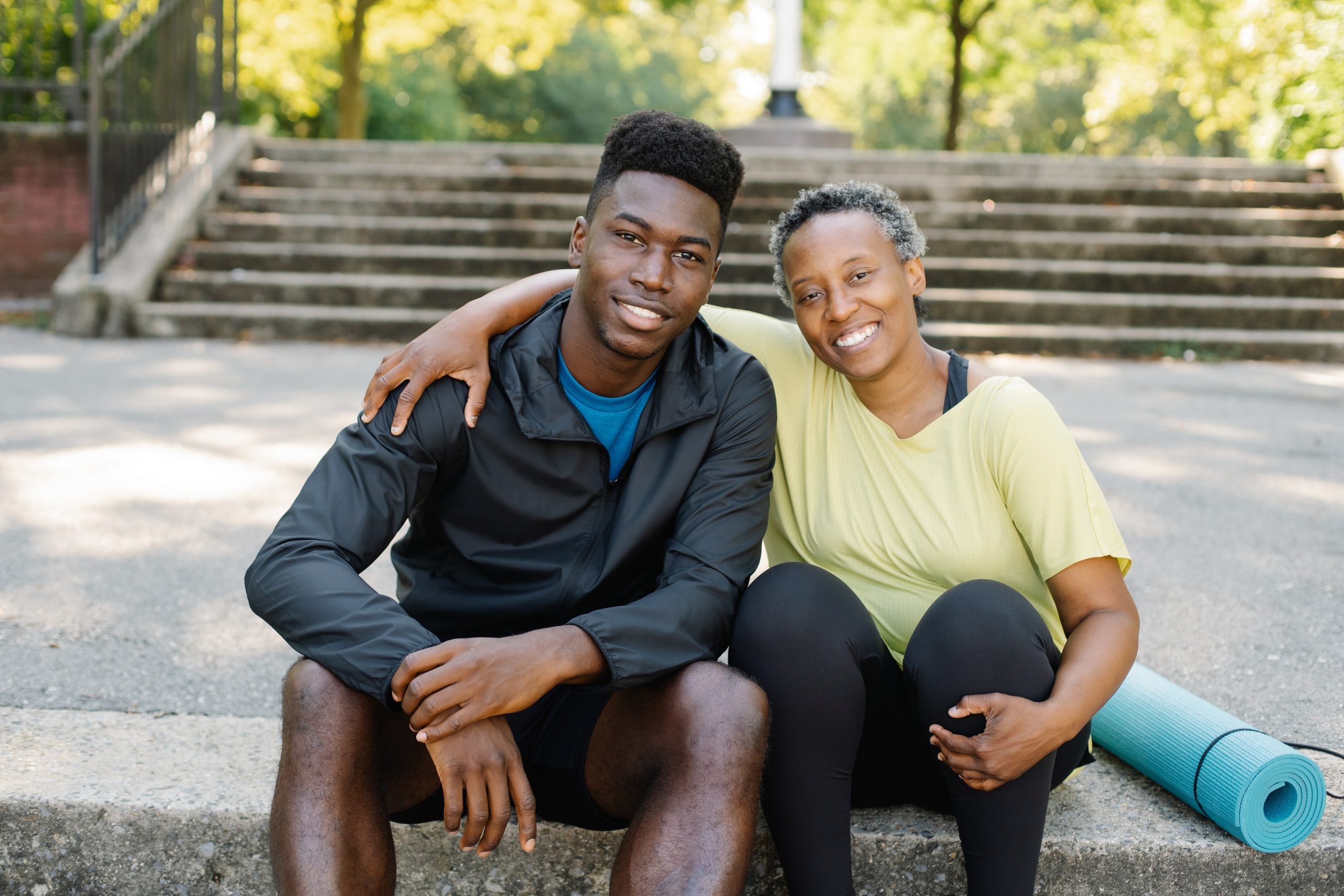Without motivation, there is no athletic effort and definitely no athletic achievement. Yes, other characteristics, such as commitment, determination, desire, and a never-give-up attitude are all vital, but without motivation, these qualities mean nothing.
Simply put, if your goal is to improve your health and fitness, you need to be motivated and 100% prepared to do whatever (morally) it takes to achieve your goals.
To reach peak fitness, the best athletes go above and beyond others in terms of training, nutrition, and recovery. These elite athletes remain motivated despite adversity, such as season-ending injuries and performance slumps.
Outside factors and influences, like emotions and the judgment of others, can detract from and impact your motivation in the gym. Not only that, but motivation, or lack of it, affects other important areas of fitness, including:
-
Physical and mental performance
-
Rest, recovery, and injury prevention
-
Decision-making
-
Sleep
-
Diet and your relationships
What is motivation, and why is it so important?

Motivation is the ability to persist until a task is finished. But as you’d expect, there is a little more to motivation than that, especially when reaching peak fitness performance.
According to the American Psychological Association, ‘Motivation is the impetus that gives purpose to behavior. Motives are divided into physiological motives, such as hunger and thirst, and personal motives, such as affiliation and personal goals. An important distinction must also be drawn between internal motivating forces and external factors, such as rewards or punishments, that can encourage or discourage certain behaviors.’
You can control your motivation
Generally speaking, motivation is one of the only factors you have complete control over in sports and fitness. This is the primary reason why motivation is essential in pursuing peak health and wellness. Motivation keeps you on track even when things aren’t going your way.
Outside forces can influence motivation
External forces and diverse situations can also influence your motivation levels.
For example:
-
Training at a new gym
-
Working out in front of strangers
-
Working out with a new coach
-
An unexpected change to your workout
-
Weather
Regardless of what sport you play or fitness hobby you pursue, you’re bound to be impacted by external factors that are totally out of your control. This is where ‘internal motivation’ plays a crucial role in achievement. More on that shortly.
Whether you accept it or not, motivation affects peak fitness performance. Luckily, though, motivation is one of the only aspects of your routine you can control. Take a look at Micheal Jordan, who displayed the same motivation, no matter his situation. In fact, Jordan mustered more motivation when faced with adversity.
If you have the same skills, the result ultimately comes down to who is willing to work the hardest and not give up.

Motivation and reaching peak fitness

What motivates you to get out of bed and hit the treadmill for 30 minutes each day? For some people, it’s the sense of pushing themselves to the limit, while for others, it’s the enjoyment and satisfaction of working out with friends.
Some people, though, are lucky to be motivated by both types, meaning they feel good in their body, mind, and spirit. We’ve all heard the saying, ‘Nobody is perfect.’ This adage couldn’t be more accurate when applied to sports and fitness. Performing at your peak is not easy; as a matter of fact, it’s demanding.
One of the most challenging aspects of sports and fitness is that regardless of how hard you try, many benefits and achievements are delayed, sometimes for months and even years. In situations like this, it can be tough to remain positive and motivated.
Motivation lays the foundation for performance in any pursuit, particularly sports and fitness, where people often face adversity, such as a heartbreaking loss or a serious injury.
The two primary types of motivation are:
-
Intrinsic motivation
-
Extrinsic motivation
Getting the most out of your fitness performance requires you to understand exactly how both modalities of motivation work.
Let’s take a closer look.
Intrinsic motivation and fitness performance
Now, this might sound obvious, but it’s true; the biggest benefit of intrinsic motivation is that you have it at your disposal anywhere at any time. Whether it’s a tough workout session or the final minutes of your spin class, intrinsic motivation is the critical factor that keeps you on track and gets you over the line.
Displaying intrinsic motivation can be tough, especially when faced with adversity like mastering new moves or overcoming injury. Reaching peak fitness isn’t easy; it takes mental and physical commitment and perseverance, especially when the results aren’t there yet.
Elite athletes have ‘dialled’ in their intrinsic motivation and use it to overcome adversity and thrive in it. You can, too!
Extrinsic motivation and fitness performance
Sometimes, when striving for peak fitness, intrinsic or ‘self-motivation’ isn’t enough to get the job done; instead, you’ll need to look toward external influences.
Extrinsic motivation is getting encouragement from external sources, such as a coach or a fellow gym member. For example, an experienced coach or trainer can help motivate you when your inner voice has deserted you.
Note from Healthypedia
Extrinsic motivation can also have negative beginnings. Many gym-goers feel pressured and ‘coerced’ to keep up with other, more experienced members. Doing this can lead to injury and lack of motivation driving many fitness beginners to simply give up.
The big problem with external motivation is that most people crumble when it’s not there, especially people with low self-motivation. For instance, what if someone you respected, like your partner or best friend, said to you:
-
I don’t care about your fitness goals.
-
You won’t make it; you’re not a born athlete.
-
Just give up; you’re better off trying something else.
-
You’re wasting your time. You don’t have the right body for fitness.
More than likely, these statements would dent the motivations of most gym-goers; this is why it’s essential to develop self-motivation. Remember, ‘when the going gets tough, the tough get going.’
The role of praise in improving fitness performance


Praise sometimes can get a bad rap, especially in sports and fitness, when athletes are viewed as ‘strong and self-reliant’ and don’t need recognition. However, gym-goers and amateur athletes can benefit greatly from a few kind words that help motivate and inspire them.
As a professional coach, I can tell you that even the best athletes need some praise from time to time. It’s all fine and well to put in the hard yards, but at some point, it’s encouraging and uplifting to hear some kind words from people you love.
Like most things in life, praise is a balancing act, and too much of anything is never good. Fitness lovers and gym buffs must be able to handle constructive criticism aimed at improving their fitness performance.
A few stern words from your coach or trainer at the right time during a fitness session can motivate you to up your performance.
Motivational myths and fitness performance
One of the most predominant misconceptions about motivation is that fitness goers must use the same type of motivation for all sports and activities. But guess what? It’s not true.
For example, playing an individual sport like tennis requires different motivations than playing a team sport like basketball. A tennis player counts on self-motivation to guide them through the emotional roller-coaster of the match, while athletes in team sports generally rely on their coaches and teammates.
Other factors, such as the weather, can also influence the type of motivation used. For elite athletes, factors like media and fan scrutiny are always prevalent. Luckily, we, gym-goers, don’t need to deal with that!
How to stay motivated?

Many techniques can be employed to stay motivated, but continuous learning and education are the best. Elite athletes and coaches look for innovative ways to improve themselves. And you can too!
You can improve your knowledge and performance as a gym-goer by enrolling in various courses, such as a coaching course or even an introductory first-aid course. The more resources you have, the better equipped you are to motivate yourself and others.
Remember, reaching peak fitness requires belief, determination, and self-motivation.
Identifying internal and external factors that can lower your motivation is also crucial. Knowing and understanding your weaknesses allows you to improve and strengthen your mental will.
It was said that the Roman Army’s greatest strength was knowing its weaknesses.

Sum it up

Motivation lays the foundation for health and fitness success at any level. Whether you’re a professional cyclist, a CrossFit fan, or just starting out on your fitness journey, motivation helps you persist in the face of adversity.
Not only that, but intrinsic motivation or ‘self-motivation’ strengthens your confidence and belief and is that little inner voice that can make all the difference to the final outcome.
Want to learn more?
In this video, renowned Neuroscientist Andrew Huberman explains the strong relationship between building good habits and improving performance. As Dr. Huberman suggests, good habits help you stay motivated and disciplined.
If you’re serious about boosting your performance in all areas of your life, this is a must-watch clip.








